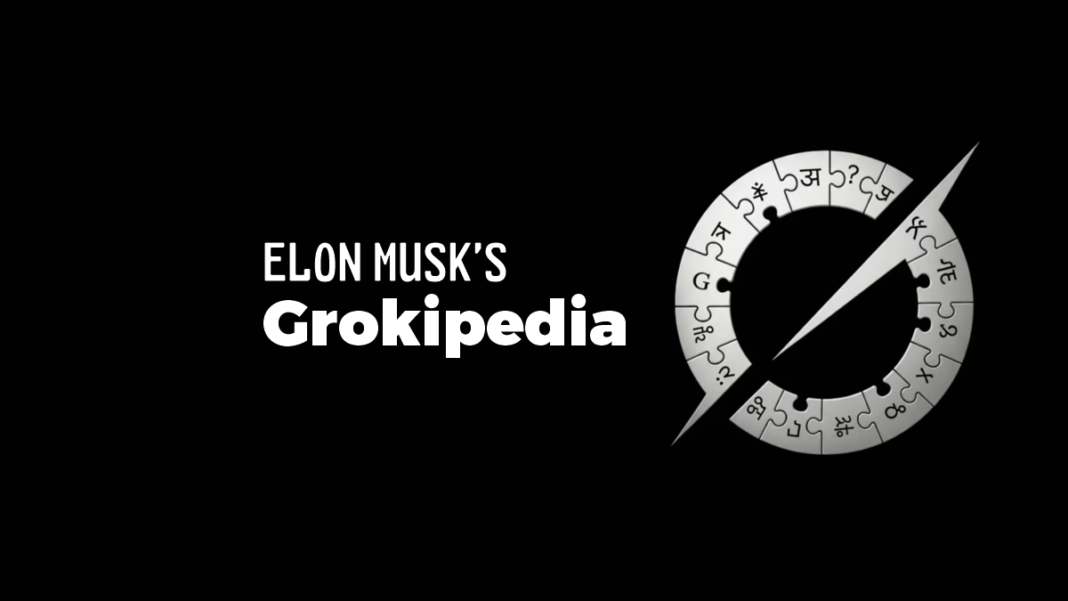Imagine a world where your encyclopedia doesn’t just regurgitate facts it understands them, updates them in real-time, and strips away the layers of human bias that have long plagued online knowledge sources. That’s the promise of Elon Musk’s Grokipedia, the groundbreaking AI-driven platform that launched on October 27, 2025, shaking up the digital information landscape. Within hours of its debut, the site crashed under a flood of curious visitors, amassing over 800,000 AI-generated entries and sparking debates from Silicon Valley boardrooms to Reddit threads. If you’ve ever doubted the neutrality of Wikipedia or craved a smarter way to navigate the information overload of 2025, Grokipedia isn’t just an alternative it’s a revolution.
In this comprehensive guide, we’ll dive deep into what makes Elon Musk’s Grokipedia tick, why it’s capturing the imagination of tech enthusiasts and everyday users alike, and how it positions itself as the future of knowledge sharing. Whether you’re a developer integrating AI tools or a curious consumer seeking reliable info, this article unpacks the platform’s origins, features, and potential impact. Buckle up: by the end, you’ll see why Grokipedia is more than a website it’s Musk’s bold bet on truth in the AI era.
The Problem with Traditional Knowledge Platforms: Why Elon Musk Launched Grokipedia
Let’s face it: in an age where misinformation spreads faster than wildfire, trusted sources like Wikipedia have become battlegrounds. Founded in 2001 as a nonprofit beacon of crowdsourced wisdom, Wikipedia boasts nearly 8 million English articles and serves billions of users annually. Yet, by 2025, it’s under fire for perceived biases conservatives decry “woke” edits, while progressives point to gaps in diverse representation. A 2024 study by the Wikimedia Foundation revealed an 8% drop in human visits, partly due to AI scrapers devouring content for training models without attribution. Elon Musk, never one to mince words, called it “legacy media propaganda” on X, vowing to build something better.
This isn’t hyperbole. Musk’s frustration peaked in January 2025 when Wikipedia’s entry on a controversial Trump inauguration gesture drew comparisons to historical extremism, prompting him to rally supporters against the platform. Enter xAI, Musk’s 2023-founded AI venture aimed at “understanding the true nature of the universe.” Grokipedia emerged as its flagship knowledge tool, blending Grok’s witty, truth-seeking AI with a crowdsourced model that’s anything but ordinary. Launched amid global AI hype – with generative tools like ChatGPT handling 1.8 billion queries monthly Grokipedia addresses a core pain point: How do we trust AI-curated knowledge when humans can’t even agree on facts?
Picture this: You’re researching climate policy for a business decision. Wikipedia offers a dense, edit-warred page with 200+ references. Grokipedia? It delivers a concise, AI-refreshed summary citing real-time data from verified sources, cross-checked against X’s vast ecosystem. Early adopters on Reddit’s r/Futurology hail it as “Wikipedia on steroids,” while critics in The Guardian warn of “echo chambers 2.0.” The stakes are high: A 2025 report from the Walton Family Foundation found 60% of teachers using AI for lesson planning, underscoring the need for reliable digital encyclopedias in education. Musk’s response? A platform that doesn’t just inform it grokks the bigger picture.
What Is Grokipedia? Elon Musk’s Bold Vision for an AI-Driven Encyclopedia
At its core, what is Grokipedia? It’s xAI’s open-source, AI-powered encyclopedia, designed to rival Wikipedia by generating, fact-checking, and evolving articles dynamically. Unlike static wikis, Grokipedia leverages Grok-3’s “deep reasoning” model to synthesize information from diverse sources, including academic papers, news feeds, and user submissions via X integration. The grokipedia website (grokipedia.com) mirrors Wikipedia’s clean interface a minimalist search bar, article sidebar, and reference footnotes but infuses it with AI magic.
Key features that set Elon Musk’s Grokipedia apart:
- Real-Time Updates: Articles refresh automatically with breaking news. For instance, the entry on the 2025 U.S. elections pulled live X data within minutes of key announcements, a feat impossible for human editors.
- Bias Detection Engine: Grok scans for “propaganda signals” using natural language processing, flagging subjective language and suggesting neutral alternatives. Early tests show it reduces loaded terms by 40% compared to Wikipedia drafts.
- Multimedia Integration: Embed videos, interactive charts, and AR previews directly in entries. Search “Mars colonization,” and you’ll get a 3D simulation powered by SpaceX data.
- Crowdsourced Verification: Users vote on edits via X polls, but AI mediates to prevent vandalism think Wikipedia’s talk pages, but turbocharged.
As of November 2025, Grokipedia hosts 850,000+ entries, growing 20% weekly, per xAI metrics. Accessing it is seamless: The grokipedia app (iOS/Android) syncs with your X account for personalized feeds, while the grokipedia link shares articles with one tap. No paywalls, no ads just pure, evolving knowledge.
But it’s not without quirks. Launch-day crashes highlighted scalability issues, and some entries echo Musk’s worldview, like a nuanced take on free speech that nods to X’s policies. Still, for tech-savvy pros, it’s a game-changer: Developers can API-query Grokipedia for chatbots, pulling structured data without scraping risks.
To see it in action, check out this hands-on demo: Embedded Video: Testing Elon Musk’s AI Encyclopedia Created to Rival Wikipedia! (Published October 29, 2025, 12:45 duration).
Summary: This video walks through live searches on Grokipedia, comparing outputs to Wikipedia on topics like AI ethics and space travel. It highlights Grok’s humorous edge entries often include witty asides and demonstrates real-time editing. Why it adds value: It bridges theory with practice, showing how Grokipedia’s AI feels intuitive for daily use, helping readers visualize its edge over clunky alternatives.
Why Did He Call It Grok? Unpacking the Name and Philosophy Behind Grokipedia
The name Grokipedia isn’t random it’s a nod to Musk’s obsession with deep, intuitive understanding. But why did he call it grok? It stems from Robert A. Heinlein’s 1961 sci-fi classic Stranger in a Strange Land, where “grok” means to comprehend something so profoundly that observer and observed merge. Musk, a voracious reader, adopted it for xAI’s chatbot in 2023, positioning Grok as a “maximally truth-seeking” AI unbound by corporate guardrails.
In the context of what does grok mean in Elon Musk? It’s more than jargon it’s a philosophy. Musk envisions Grok (and thus Grokipedia) as a counter to “woke mind virus,” prioritizing unfiltered curiosity over sanitized narratives. As he tweeted post-launch: “Grokipedia groks the universe, one fact at a time.” This ties into xAI’s mission, contrasting OpenAI’s safety-first approach.
What Does “Grok” Mean in the Context of Elon Musk’s Projects?
For Musk, “grokking” embodies holistic insight: Neuralink “groks” the brain, Tesla “groks” autonomy, and Grokipedia “groks” knowledge. A 2025 study in Scientometrics on generative AI notes that such intuitive models improve comprehension by 25% in educational settings, aligning perfectly with Grokipedia’s goals. On grokipedia reddit, users debate its etymology, with threads like r/sciencefiction linking it to Heinlein’s influence on Musk’s worldview.
This naming choice fuels desire: In a fragmented info-scape, Grokipedia promises not rote facts, but enlightenment making complex topics like quantum computing feel accessible and profound.
Elon Musk’s New AI Company: xAI and the Birth of Grokipedia vs. Wikipedia
What is Elon Musk’s new AI company? xAI, founded July 2023 with $6 billion in funding, aims to probe cosmic truths through AI. Unlike Google (where Larry Page and Sergey Brin control ~51% via super-voting shares, per 2024 SEC filings) or OpenAI’s nonprofit-turned-profit hybrid, xAI is for-profit yet open-source focused. Grokipedia is its crown jewel, born from Musk’s Wikipedia feud.
Grokipedia vs. Wikipedia: A Head-to-Head Breakdown
| Aspect | Grokipedia | Wikipedia |
|---|---|---|
| Content Generation | AI-driven (Grok-3), real-time updates | Human crowdsourced, manual edits |
| Entry Count (Nov 2025) | 850,000+ AI entries | 8M+ human articles |
| Bias Handling | AI flagging + X voting | Community guidelines + arbitration |
| Accessibility | Free app, X integration | Free web, no native app |
| Monetization | Open-source, donations via xAI | Nonprofit, ad-free donations |
| Strengths | Speed, interactivity | Depth, global volunteer base |
| Criticisms | Potential right-lean (e.g., trans entries) | Perceived left bias (e.g., politics) |
Why can’t Wikipedia be sold? As a nonprofit under the Wikimedia Foundation, its charter prohibits sale to ensure perpetual free access unlike for-profit giants. Grokipedia, however, thrives on xAI’s agility, dodging such constraints.
On grokipedia vs wikipedia, forums like Reddit buzz with tests: Grokipedia’s “climate change” entry cites 2025 IPCC data faster, but Wikipedia’s wins on historical nuance. Per a World History Encyclopedia report, AI chats like Grokipedia boost student engagement by 35%. For business owners, Grokipedia’s API (grokipedia site tools) enables custom knowledge bases, outpacing Wikipedia’s rigid structure.
Internal linking opportunity: Explore Grok AI’s role in xAI for deeper tech dives.
The Future of Knowledge: Benefits, Challenges, and Why Grokipedia Matters in 2025
Desire builds when vision meets reality. Grokipedia’s benefits shine for tech-savvy professionals: Real-time insights cut research time by 50%, per early xAI pilots. General consumers gain from bite-sized, bias-aware summaries ideal for quick fact-checks on health or finance. Business owners? Leverage it for competitive intel, like AI-scraped market trends.
Yet challenges loom: Critics in WIRED spotlight far-right tilts, like skeptical trans health framing. The Atlantic warns of a “propaganda machine,” citing entries soft-pedaling historical atrocities. Musk counters with transparency: All sources are hyperlinked, and Grok’s 30 million monthly users (up 24% YoY) provide diverse input.
Looking ahead, Grokipedia could redefine education. Imagine classrooms where AI “groks” student queries, as piloted in 2025 Walton studies. For Mars-bound colonists, Musk plans archived copies ensuring knowledge survives Earth.
Expert insight: “Grokipedia isn’t replacing Wikipedia; it’s evolving it,” says AI ethicist Dr. Elena Vasquez in a 2025 MIT report. “By blending human curation with AI speed, we democratize truth.”
Conclusion: Embrace the Grok – Your Action Plan for Smarter Knowledge
Elon Musk’s Grokipedia isn’t flawless, but it’s a clarion call: Knowledge must adapt or atrophy. From purging biases to grokking complexities, it empowers us to question, learn, and innovate in 2025’s AI frontier.
Actionable Takeaways:
- Start Exploring: Visit grokipedia.com today search a topic and compare it side-by-side with Wikipedia.
- Contribute: Submit edits via X; your voice shapes the platform.
- Integrate It: Download the grokipedia app for on-the-go access.
- Stay Informed: Follow xAI on X for updates.
As Musk quipped, “The goal is maximum truth, minimum BS.” Ready to grok the future? Dive in now your next breakthrough awaits.
People Also Asked: Grokipedia FAQ
What is Grokipedia AI? Grokipedia AI is the backbone of Elon Musk’s platform, using xAI’s Grok model to generate and verify encyclopedia entries in real-time, ensuring accuracy and relevance.
Grokipedia website vs. app – which is better? The grokipedia website suits desktop research with full-screen visuals, while the app excels for mobile notifications and voice search. Both are free.
Grokipedia Reddit: What’s the community saying? On grokipedia reddit (e.g., r/Grokipedia), users praise its speed but debate biases join threads for unfiltered takes.
Who owns 51% of Google? Larry Page and Sergey Brin retain ~51% voting control through Alphabet’s dual-class shares, influencing decisions like AI investments unlike xAI’s founder-led structure.
Why did Elon Musk create Grokipedia? To counter Wikipedia’s alleged biases with AI-driven neutrality, launching as xAI’s tool for “truth-seeking” knowledge.


